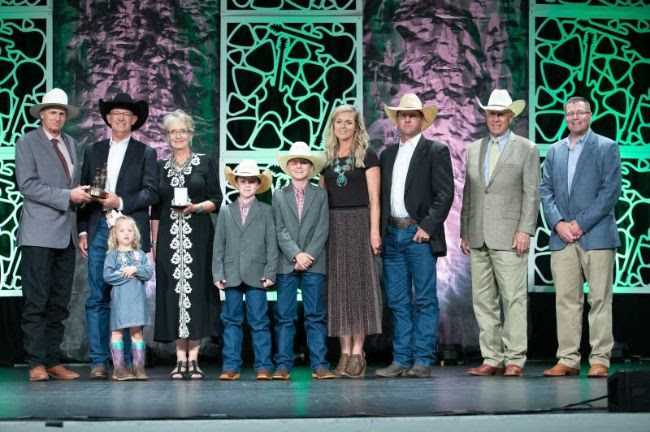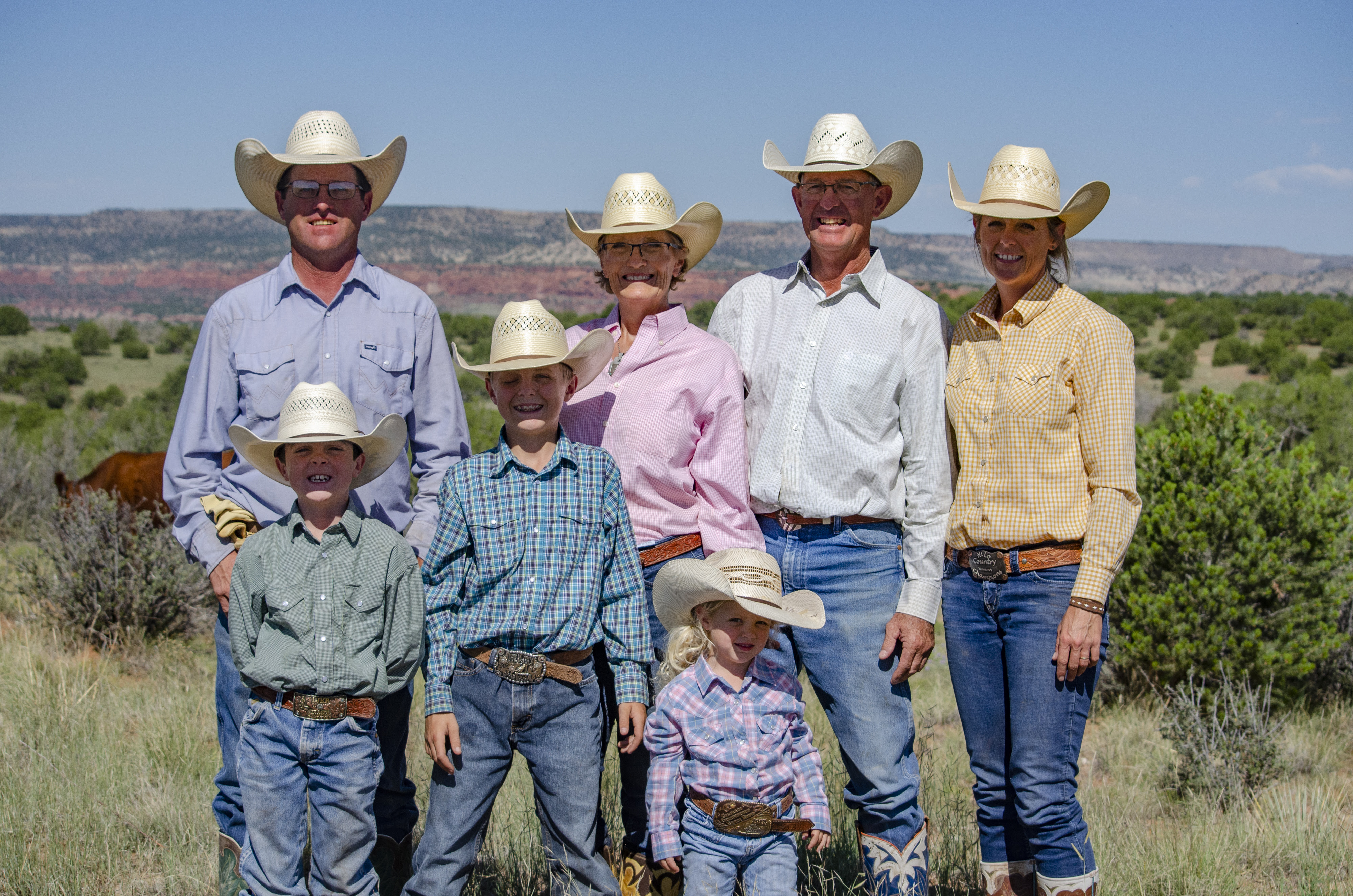Beatty Canyon Ranch Selected as National Winner of the 2020 Environmental Stewardship Award Program

ARVADA, Colo – Last week, Beatty Canyon Ranch in Kim, Colo. was selected as the national winner of the 2020 Environmental Stewardship Award Program (ESAP). The award, which annually recognizes the outstanding stewardship practices and conservation achievements of cattle producers, was presented on August 10th, during the 2021 Cattle Industry Convention and NCBA Trade Show in Nashville, Tenn. As the second national winners from Colorado, Beatty Canyon Ranch takes rank among the best of the best of the committed land and livestock stewards from around the country.
Owned and operated by Steve and Joy Wooten and Brady and Arin Burnham, BCR manages 125,000 acres and has the fourth, fifth and sixth generations of land stewards involved in day-to-day operations. The ranch is a family and faith-based business with its focus on land, livestock, recreation, and community.
“Judicious management of our natural resources has sustained the ranch through hardships across generations,” said Steve Wooten. “We are so honored to be recognized for our family’s efforts to preserve the environment, support communities, and share our quality of life with others.”
Controlling invasive species, grazing management and improving wildlife habitat are just a few of the reasons BCR was selected as the National ESAP winner. A pressing issue ranch owners and employees have focused on is repairing the river systems that run through their property.
The Purgatoire River and Chacuaco drainage, both of which have been severely damaged by the invasive plant species tamarisk, span several miles of the land. BCR’s efforts to remove the tamarisk have resulted in more vegetative cover in the wetland zones and a new flourishing population of willows, which now stabilize the stream banks. Tamarisk leaves increase the salinity of soil and water, so its removal also improves water quality.
The current plethora of wildlife that occupy the ranch and its surrounding area have also taken root due to generations of land managers that prioritize the symbiotic relationship between ranching and wildlife management. In 2002, Steve Wooten’s grandmother, in conjunction with the Colorado Department of Wildlife, transferred 17 Rocky Mountain bighorn sheep onto the ranch. Today, this herd is the largest population in Colorado, reaching more than 500 head within the canyon structure. This herd provides sheep to be relocated to grow bighorn populations in areas of need.
“Steve has consistently supported grassroots policies and efforts that promote cutting-edge conservation efforts and natural resources stewardship on working lands, including the policy specific to climate goals for Colorado’s beef sector passed by our CCA members at the 2021 Annual Convention,” said Terry Fankhauser, CCA Executive Vice President. . Utilizing direction and comments from the membership, Wooten and other CCA leaders have strongly advocated for sustainability and climate goals that echo the beef industry’s long-standing commitment to caring for the environment and protecting natural resources. CCA will continue to actively engage in proactive processes to best determine a climate/environmental baseline for beef production in Colorado, with the hopes of continuing to coordinate with national efforts surrounding sustainability goals for the industry.
 
###
Colorado Cattlemen’s Association’s (CCA) is the state’s premier cattlemen’s association serving as the principal voice and advocate for Colorado beef production. CCA accomplishes this through its vision of “advancing the legacy” of beef production for its members by ensuring a dynamic and profitable industry that provides growth and opportunity for future generations.
|